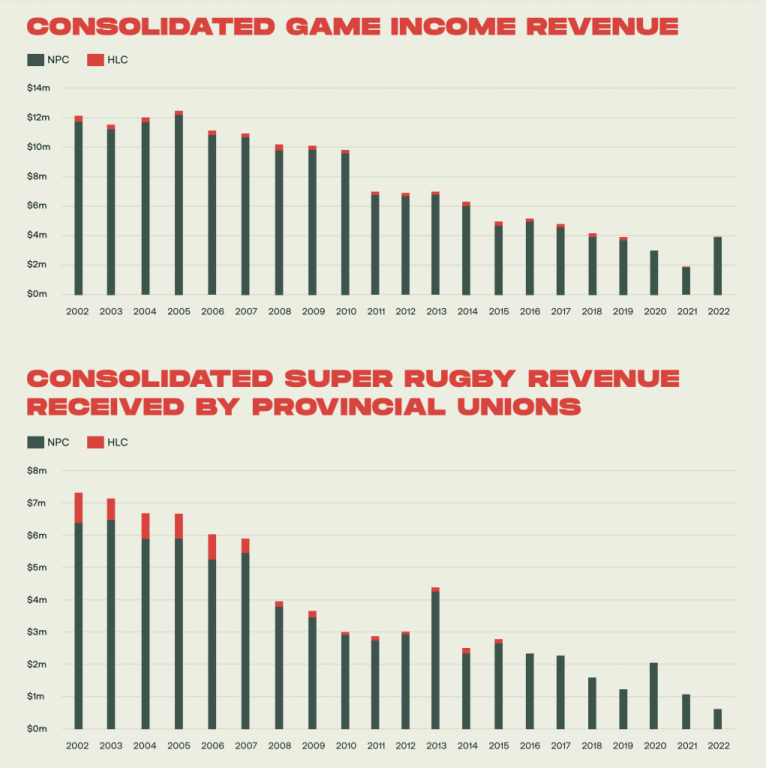'Urgent' change required for NZR's 'not fit for purpose' operating model

An independent review into New Zealand Rugby’s (NZR) operating structure has revealed that “urgent” changes are required according to the report released on Thursday.
The review panel, led by David Pilkington, concluded that NZR’s structures were “not appropriate” in the modern era, with the game undergoing much change since the dawn of professionalism.
Its current model was “not designed for a business of this size” with many pain points causing headaches as NZR battles commercial interests, the Provincial Unions, and the development of the game.
The National Provincial Competition is one of the contentious issues, which has a wide professional player base despite the lack of self-generating income to support it. Game income revenue for Provincial Unions had fallen by roughly 67 per cent from a peak in 2005.
The report concluded that the NPC can only continue “with the financial support of NZR” while Super Rugby clubs are struggling to make money also.
Wednesday night’s clash between Manawatu and Auckland hosted at Eden Park was perhaps the perfect symbol of this struggle, with the two teams playing in front of a near-empty stadium that holds over 50,000.

“We question not only whether New Zealand can support so many fully professional rugby players but whether it can afford the overhead costs of 26 different Provincial Unions,” the review stated.
The conflict with NZR for Provincial Unions stems from too much priority on high performance over community and fan initiatives. The report found that on average “59% of the NPC Unions’ expenditure is on high performance.”
The challenges identified included “falling participation rates for the game, falling spectator numbers for domestic rugby, fan engagement, and misaligned use of funding towards strategic initiatives.”
The Silver Lake capital injection that was provided to the Provincial Unions was used to clear debt with the NZR amongst other things, with whispers some provinces used up the $1 million on funding their men’s side.
Despite having financial dependence on NZR, the Provincial Unions possess the collective power to throw the NZR board out under a special general meeting.
Thus, a struggle of interests eventuates with NZR fearful of cracking down and upsetting the provinces too much.
The review panel recommended an “Independent board” be set-up to govern the NZR organisation and secondly a “Stakeholder Council” be formed to deal with everyone else in the game.
“New Zealand Rugby in the professional era is a large and complex business,” said review chair Pilkington.
“The structure it sits within was not designed for a business of this size and complexity. There is widespread recognition that change is needed to address the many challenges.
“We are confident that what we propose is the best route forward. The conclusions are not novel, they exist and work in other organisations and environments.
“There have been a number of reviews in recent times and it is this panel’s fervent hope that this is the last review of this type and that walk, finally replaces talk.”







































